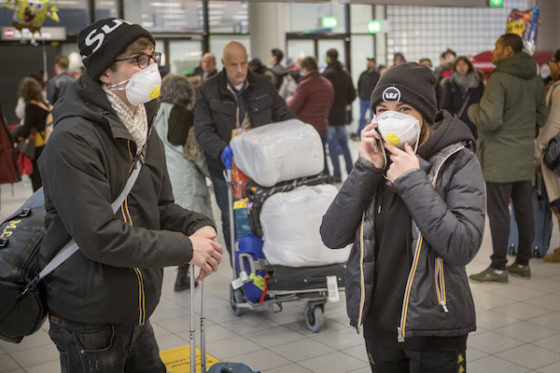First Dutch coronavirus victim was in Italy and celebrated Carnaval: media


The first Dutch coronavirus patient is a 56-year-old man from the village of Loon op Zand, north of Tilburg, Dutch media reported on Friday.
The man was hospitalised in Tilburg on Wednesday after twice testing positive for the virus, in line with protocol, health officials said. He is being treated at the Elisabeth-TweeSteden hospital in an isolation unit and is said to be responding well.
The man had recently returned from a visit to the Italian region of Lombardy where some hundreds people have been diagnosed with coronavirus.
Health officials are now trying to trace his movements since his return. Several sources have told local broadcaster Omroep Brabant that the man had celebrated Carnaval in both Tilburg and in Loon op Zand.
All identified contacts will be monitored to halt the spread of the disease.
This involves taking their temperature twice a day and reporting it to the local health board. They must also report any other symptoms. ‘These measures will help reduce the risk of the disease spreading in the Netherlands, the RIVM said.
Earlier on Thursday it emerged that three more cases of coronavirus had been reported in Germany just over the Dutch border at Sittard. They may have caught the disease from another German Carnaval goer who had been in Italy.
Dozens of Dutch nationals are also in quarantine in Italy and in Tenerife where they had been holidaying during the winter half-term. Some may also have been quarantined at the Crowne Plaza hotel in Dubai.
People who are worried about their own or other people’s health are being urged to check out the website of the public health institute RIVM which has information in Dutch and in English.
Symptoms
The World Health Organisations says common signs of infection include respiratory symptoms, fever, cough, shortness of breath and breathing difficulties.
The WHO’s standard recommendations to prevent infection spread include regular hand washing, covering the mouth and nose when coughing and sneezing and thoroughly cooking meat and eggs.
People should also avoid close contact with anyone showing symptoms of respiratory illness such as coughing and sneezing, the world health agency said.
Fears
Virology professor Eric Snijder told RTL Nieuws on Thursday that healthy people have nothing to fear from the disease.
Some 80% of victims develop mild symptoms and only a small proportion of the total number of people who are infected will die. They are likely to be elderly or already be suffering from health problems.
‘If I compare it with a real killer virus like ebola, then the chance of survival is very small, he said. ‘But the coronavirus is the opposite.’
Economy
Meanwhile, Dutch central bank president Klaas Knot told a meeting in Amsterdam that the coronavirus outbreak may have a major impact on the economy.
‘It is still too early to estimate the impact of the pandemic, but it is safe to say that it could be a severe knock to the global economy,’ he said.
The Sars outbreak 15 years ago led to major losses on the stock exchange, but since then, ‘China has grown from the sixth to the second biggest economy in the world since the Sars outbreak,’ he said.
Thank you for donating to DutchNews.nl.
We could not provide the Dutch News service, and keep it free of charge, without the generous support of our readers. Your donations allow us to report on issues you tell us matter, and provide you with a summary of the most important Dutch news each day.
Make a donation